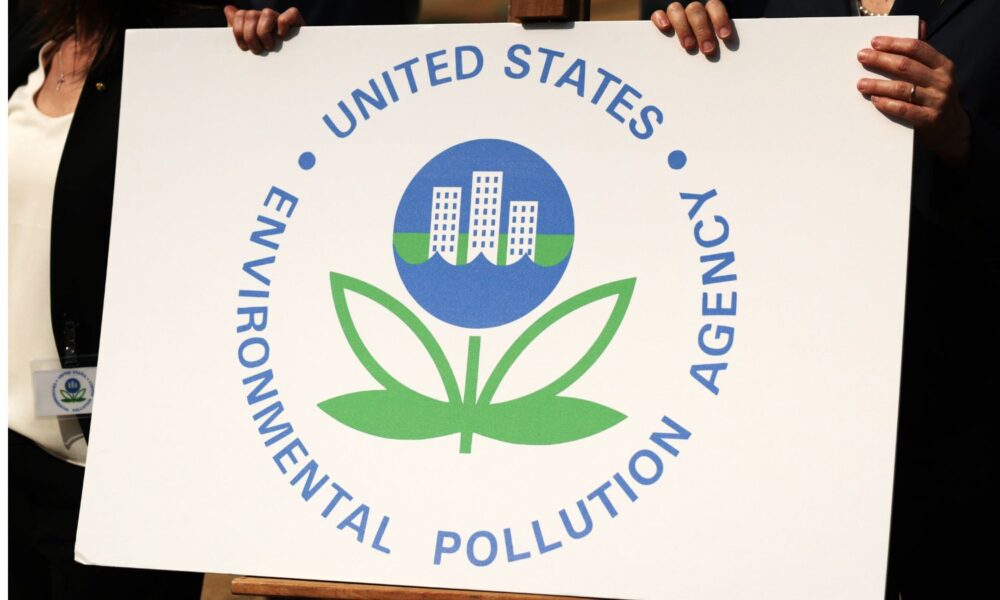This post was co-authored with Enrique Carbone, an MPS student at the Clinton School of Public Service at the University of Arkansas at Little Rock.
It’s official: just months after adopting a new scientific integrity policy, the Environmental Protection Agency (EPA) has quietly erased that policy from the agency’s website. This is a historic collapse that will have serious consequences for scientists and researchers in years to come.
The removal of the 2025 policy comes at a time of serious turmoil for American science, which now faces serious funding cuts, mass firings, and growing censorship of scientific expertise. The loss of the policy—which had been updated in January of this year—is no less critical. Its removal not only eliminates important protections for scientists today, but risks exposing science to severe political interference in the future. This reversal could not have happened at a worse time, with the Trump administration actively rolling back scientific protections, and aiming to redefine how science is done.
The updated 2025 EPA policy presented more than just a simple update on the Obama-era 2012 policy. Building on the 2023 Federal Framework for Scientific Integrity Policy and Practice, the 2025 policy included:
- A standardized federal definition of scientific integrity
- Provisions to explicitly protect scientists’ ability to communicate their work publicly
- A thorough process for EPA staff to submit differing scientific opinions
- A reaffirmation of the role of science and evidence to inform government policy outcomes
The 2025 policy was carefully developed over many years of soliciting input and feedback, including an interagency working group, public feedback, and consultation with Tribal governments, EPA staff, and other stakeholders—an example of public engagement that is becoming far less frequent under the Trump administration.
Earlier in May, President Trump issued an executive order calling for a complete rebranding of science, using the terms “transparency” and “peer review” to present a positive framing while installing political appointees to oversee scientific integrity. The subsequent new guidelines created by the White House Office of Science and Technology Policy (OSTP) have since laid the groundwork for how federal agencies can rescind previous scientific integrity policies adopted after January 19, 2021—clearly a politically motivated attempt at reversing Biden-era protections. These new guidelines have raised serious red flags: there is no mention of the role of science in informing federal policy, how science will maintain its independence, or who will hold political interference to account, and there are no directives to protect federal scientists from censorship or retaliation.
Ultimately, the EPA’s removal of its 2025 policy is more than just compliance with President Trump’s “Gold Standard” executive order. It is a strong signal of complicity with the Trump administration’s attempts to broadly roll back scientific integrity protections. This is bad news for an agency whose credibility hangs on protecting science from political interference.
Why this matters
At Evidence for Democracy, we recently completed our latest review of scientific integrity in the United States, which revealed a number of concerning trends.
1. Protections for scientists are being eliminated
Recent policy announcements, especially the “Gold Standard” executive order, have rapidly accelerated the erosion of legal and institutional protections for federal scientists. By installing and empowering political appointees across agencies, the Trump administration has made it easier to override peer-reviewed research, initiate mass layoffs, and eliminate whistleblower protections. For example, under Section 7 of the “Gold Standard” executive order, political appointees now have the power to determine when scientific findings should be “corrected,” seriously undermining the original intention of scientific integrity policies to safeguard science from political interference. The EPA’s 2025 update contained careful provisions to explicitly address issues including the unreasonable delay of scientific information, while also strengthening guardrails against political interference. Falling back on old policies now reopens the possibility of significant interference in science at the EPA.
2. Transparency is eroding
Transparency in American scientific practice has also shown a steep decline. The “Gold Standard” executive order’s use of certain key words, such as “reproducibility,” effectively functions as a tool to exclude research studies for lacking perfect transparency or to disqualify politically inconvenient fields such as climate science. The administration’s removal of public datasets and federal databases, especially those relating to diversity, equity, and inclusion, public health, and environmental fields of study, has created new barriers to public scrutiny and accessibility to findings. The elimination of the 2025 policy’s clearly codified rights for scientists to engage with the press and the American public now make it easier for the Trump administration to place tighter control over scientists’ communications. Overall, we found the overall score for Transparency to be a D- grade, as nominal transparency frameworks have now been weaponized by the administration as tools of suppression, rather than supporting public accountability or scientific transparency.
3. Uncertain transparency and accountability processes
For many years, federal scientific accountability systems have been structured around clear misconduct definitions, strong frameworks, clear reporting policies, and agency-level enforcement. Over the past year, these systems have been fundamentally undermined by severe political interference. Under the “Gold Standard” executive order, political appointees are now empowered to reclassify politically inconvenient research as “misconduct,” decide what qualifies as a violation of scientific integrity, and decide what level of enforcement, if any, a federal agency should have. Nine agencies and departments have since launched implementation plans to either rescind or change their scientific integrity policies, including the NIH and EPA. The loss of the EPA’s 2025 policy, which contained strong reporting procedures and dedicated roles for investigating violations, now raises serious concerns about how the complaint process will be handled, further reducing both transparency and accountability within the agency. These rollbacks – combined with weakened internal oversight, and suppressed public records of scientific corrections and retractions – now suggest that scientific integrity violations are now much less likely to be addressed and recorded across federal bodies. Our assessment found these systems score a D grade in Accountability, reflecting how quickly enforcement and oversight for scientific integrity has fallen to political interference.
4. Symbolic and structural loss
The combined impact of these measures is a substantial symbolic and structural loss for scientific integrity in the United States. High-profile attacks on science, suppression of politically inconvenient research findings, and termination of billions of dollars in research funding show that integrity frameworks are not only being severely weakened, they are being completely remodeled to align science directly with political priorities. Our review found that the U.S. earns a C- grade for Commitment, given the narrow centralization of authority through politically-appointed officials and attempts to rebrand science as ideology, signalling an intentional and deliberate erosion of scientists’ independence and their role in informing government decision-making.
What we can do
Scientific integrity now faces an existential threat in America. Concerted efforts by the Trump administration to eliminate scientific expertise, suppress evidence, and undermine critical scientific integrity protections not only undermines the work of thousands of scientists, but risks compromising the independence and mission of science altogether.
It’s time to get mobilized. Push Congress to pass the SI Act, join campaigns and networks, and know your rights. By protecting scientific integrity, we can ensure that thousands of scientists and researchers are able to build stronger foundations of public trust, accountability, and the science needed to safeguard our future.

